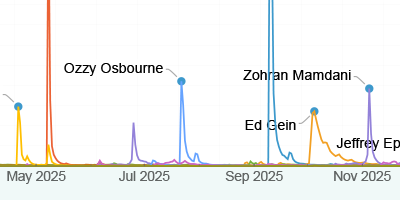Mathematica 12 Available on the New Raspberry Pi 4
With the recent announcement of the all-new Raspberry Pi 4, we are proud to announce that our latest development, Version 12 of Mathematica and the Wolfram Language, is available for you to use when you get your hands on the Raspberry Pi 4.
Mathematica 12 is a major milestone in our journey that has spanned 30 years, significantly extending the reach of Mathematica and introducing a whole array of new features, including significant expansion of numerical, mathematic and geometric computation, audio and signal processing, text and language processing, machine learning, neural networks and much more. Version 12 gives Mathematica users new levels of power and effectiveness. With thousands of different updates across the system, and 278 new functions in 103 areas, there is so much to explore.
Mathematica 12 performs significantly faster on the Raspberry Pi 4 than previous versions. We found that on average, among the 15 tests included in our benchmark, the Raspberry Pi 4 is 100% quicker in operating Mathematica 12—with certain tests performing even better than that! We are as excited as ever to see the amazing programs and applications users develop using the new Mathematica 12 and Raspberry Pi 4. The full table of the benchmark can be seen here:

We’re pleased to have partnered with Raspberry Pi for more than five years, and one of our collaborative efforts is Wolfram Language Projects for Raspberry Pi. These are small- to medium-sized projects that can be undertaken by anyone who wants an introduction to Mathematica and the Wolfram Language. They range from creating weather dashboards to building tools that use machine learning like sentiment analysis, or using AI for facial recognition. And if you would like to delve deeper, you can run command-line scripts and even do parallel computing.
Stay tuned for upcoming examples of the Wolfram Language on the Raspberry Pi, including explorations of our shared projects!
|
Check out all of our projects, and see how much you can do with the Wolfram Language on the Raspberry Pi! |




This is a tremendous announcement! One detail about the Raspberry Pi 4: this model is available with 1, 2, or 4GB of RAM (MSRP for the board is $35/$45/$55). For running Mathematica, 4GB of memory will definitely make a difference for Mathematica and the OS in general. If readers are recommending a Pi for family or colleagues, make sure they understand the 4GB $55 Pi 4 is the one to get.
The Pi strives for bare-bones simplicity. Articles like https://www.tomshardware.com/reviews/pimoroni-fan-shim-heatsink-raspberry-pi-4,6219.html note that a heat sink and/or a fan could be useful to expedite computation that takes hundreds of seconds. OTOH; options for cooling the 4’s board are a bit limited right now.
Comparing different Mathematica versions on different hardware is not very meaningful. Are you trying to benchmark the hardware or Mathematica? It would have been more interesting to either see a comparison between M11.3 and M12.0 both running on the RPi 4, or a comparison between the RPi3 and RPi4, both running M12.0. (But we know that the RPi4 is faster—what I’d like to know is if M12.0 is fast…)
Hi Jacob Wells , it’s the great logic to use mathematics in Raspberry Pi. It’s very helpful content. Thanks and keep sharing.
The matrix multiply and solving linear systems tests show that Mathematica 12’s BLAS (Basic Linear Algebra Subprograms) must not be well optimized for the Pi 4’s processor. The matrix arith and SVD tests show this as well.
It took many years for Wolfram to start using a BLAS tuned for the earlier versions of the Pi. When they did – in a quiet point release for Mathematica 11 – there was no fanfare but linear algebra operations suddenly became 4-5x faster!! And since so much of applied math boils down to ‘reduce the problem to iterations of linear algebra and solve’, this has huge impacts across the board.
The Pi 4’s processor is certainly capable of much faster linear algebra than the Pi 3+, and I hope it doesn’t take Wolfram years to re-tune the BLAS.
A while back, Wolfram quietly started using an optimized BLAS in Mathematica for the Pi. I’d been hoping for years that they’d do that, and when they did, linear algebra scores on the Pi 2, 3, &3+ went up by ~4x!
But looking at these benchmarks, they apparently don’t have a BLAS optimized for the Pi 4’s Cortex A72 yet. Matrix mult and solving systems are therefore slower on the Pi 4, and all the other linear algebra-related tests show lower-than-expected speedups over the 3+.
Most of applied math boils down to “find clever ways to reduce everything to linear algebra,” so I really hope you can get a Pi4-optimized BLAS in place soon!
Hi Dan:
We are aware of the issue and we are looking at ways to improve this in a future release.
Good to know!
and sorry about the semi-duplicate posts above; when I revisited the comment page after a few days and didn’t see my Aug 18th comment I thought ‘huh, I must not have actually submitted it, I’ll try again’ – but the moderation was just taking a little longer.
Now I can continue quietly enjoying high school math a little too much. I wish there was a module or something I could share with people to learn calculus on their own at home because “Common” Core is abysmal.
With this week’s launch of the Pi 400 for about $100 in the US, the availability of Mathematica for the Pi is even more exciting and could have tremendous impact in the developing world.